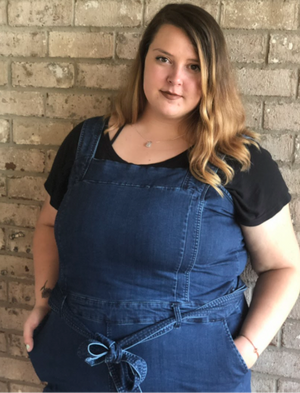April is Stress Awareness Month. Stress isn’t a fun topic of conversation because it’s not fun to feel. But after the last year, we’ve experienced, many have become acutely aware of their stress levels, and those levels are high.
84% of Americans recently reported feeling prolonged bouts of stress. This statistic isn’t surprising in the wake of the global pandemic, which has disproportionately put the health of racial and ethnic minority groups at an increased risk. On top of this health concern, we add economic disparity, worsened by COVID-19 and the American political divide. These are all contributing to our ultra-high levels of stress in 2021.
It’s essential to identify our stress levels because it affects our bodies and our mental health in a variety of ways. Once we recognize stress for what it is (our body’s reaction to a challenge/demand), we can learn to treat the symptoms.
1. Understand What You’re Dealing With: The Link Between Mental Health, Physical Well-Being, and Stress
Stress can affect our body, mood, and behavior. Interestingly enough, not all stress is bad. Sometimes a little pressure can provide the extra push we need to finish a project or meet a goal we’ve been working towards. It’s hard to perfectly define in general terms when stress becomes harmful, but you know it when you see it, or in this case, you know it when you feel it.
Listen to your body and interpret what it’s trying to say. If stress becomes harmful, you may experience headaches, an upset stomach, anxiety, or depression. A great way to get in touch with yourself and simultaneously reduce stress is through meditation and breathwork. Jasmine Marie, the founder of Black Girls Breathing, provides an excellent and free session for this.
2. Don’t Keep it to Yourself: Talk to Friends and Family.
Stress about the future has a disproportionate impact on communities of color. In a recent pandemic survey conducted by the American Psychological Association, Black Americans were most likely to report feelings of concern about the future.
Sharing these types of concerns or vulnerabilities with friends, family members, or neighbors who are part of your community can help reduce feelings of anxiety and depression. But, connecting during the pandemic is no easy feat. Now that the weather is warming up, suggest meeting outdoors for a walk. Exercise is another activity that can reduce stress levels.
3. Utilize Free Resources
- Insight Timer is a free website/app that helps you manage stress. It has meditation timers, soothing sounds, calming podcasts, and even has a section for kids.
- Try this 15-minute yoga session to combat stress.
- 7 Cups is a free way to unpack your feelings with volunteer listeners through online chat if you feel alone. There is always someone to listen to you and offer support.
4. Set Boundaries
Setting boundaries that protect your time and emotional/mental capacity can help to manage and reduce stress levels. Boundaries can be put in place for both work-life balances and relationships, whether it be family members, partners, or friends.
When we set boundaries, we express a desire or a need, and while we may be worried about how we will be received, a good friend will be able to accept this need and honor it.
Exploring your own personal values and communicating assertively are both essential parts to focus on when setting boundaries. This exercise from Therapy Aid helps us practice communicating so when it comes time to express a boundary, we feel confident and prepared.
5. Reach Out for Help from a Professional
Research suggests that the Black community is 20% more likely to experience severe psychological distress but is less likely to receive treatment. Unfortunately, reaching out for help from a professional is not a resource that is easily accessible to all due to systemic barriers and stigmas surrounding mental health.
Find an inclusive therapist from a website like BEAM. This non-profit works to remove barriers Black people experience as they gain access or stay connected with emotional healthcare and healing. Additionally, consider exploring these 55 mental health resources compiled explicitly for people of color.
Most importantly, remember you are not alone. Stress creates challenges, but the feelings caused by prolonged stress will not stick around forever. As we continue to have conversations about stress, more resources will become available, and we will learn from each other as we lean on each other.

Mary is a millennial currently based in Nashville, TN. She studied Political Science & English at the University of Tennessee and went on to work in the NYC Mayor’s Office following graduation. She is an Americorps VISTA alum. Mary later transitioned into writing for brands and creative advertising agencies as a copywriter & blogger. (That said, she has serious doubts about late capitalism but has been known to partake in spurts of online shopping for ridiculous items- like the perfect selfie stick or that handmade candle kit she has never used.)
Mary enjoys connecting, learning, and sharing stories. She is particularly interested in political, community, or historical pieces, and those that seek to dismantle the stigma surrounding mental health. As a white cis-gender female, she is an advocate for racial and gender equity.
Website: www.ihailmary.biz
Instagram: @ihailmary Inquiries: myhailmarypass@gmail.com





